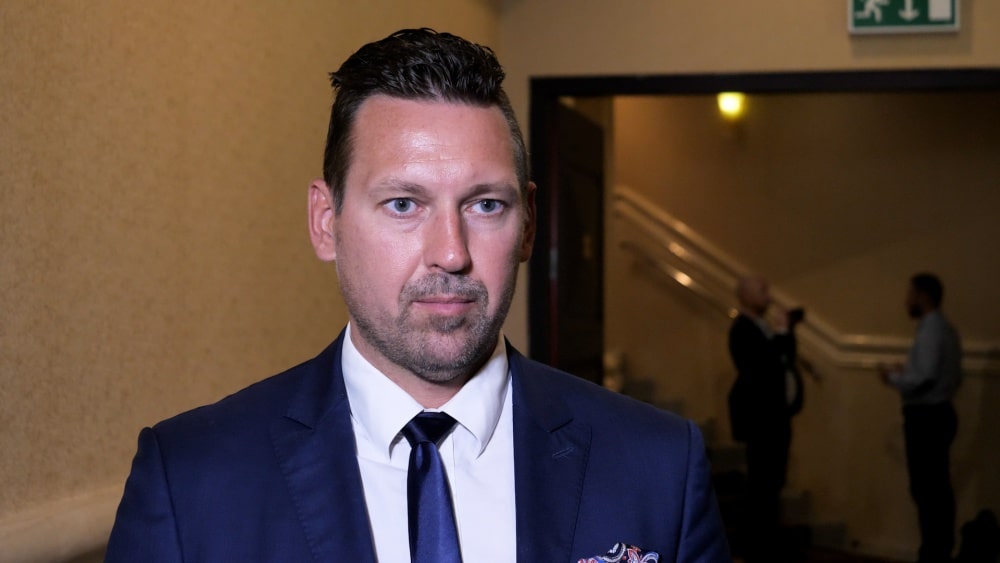Shortly after Russia’s invasion of Ukraine, Poland opened its borders to refugees, receiving 2 million people within a month. The heaviest burden was borne by regions bordering the attacked country as well as the biggest cities. Now, there is no influx of Ukrainians, many of them have returned home or have moved to other EU countries, but there are other challenges in helping those who remained, including their adaptation to life, work, and study in Poland. In the long term, Polish companies and local authorities are also considering supporting Ukraine in rebuilding its economy, including infrastructure. A second area of cooperation is preparing the country for EU accession.
“The situation that occurred at the beginning of the war surprised us; we had to cope with a large wave of refugees. Especially those provinces that are closest to the border, namely Lublin and Podkarpackie. It was a big shock, a big challenge for us, as local government authorities, provinces, and also for residents,” says Jakub Mielczarek, director of the office of the Association of Polish Voivodeships. – “Today we do not have such a large wave of refugees, but we struggle with the need to adapt Ukrainian citizens so that the time spent in Poland is not wasted, that they build their intellectual and financial potential.”
In March 2022 alone, we took in – according to the estimates of the research firm Selectivv – 2 million Ukrainian residents. Although some left for other European countries and some decided to return, it is estimated that there are about 1 million of them in Poland. Data from Eurostat quoted by the EWL migration platform indicates that at the end of the year there was an increase in arrivals from Ukraine, which was associated with the upcoming winter and the increased risk of attacks by Russia on critical infrastructure, as had happened a year earlier. In the whole EU in October 2023, the number of Ukrainian citizens covered by temporary protection exceeded 4.16 million people, including 1.17 million in Germany.
The distribution of Ukrainians settling in Poland, announced by the Office for Foreigners in February 2023, is characterized by concentration in provinces with large urban agglomerations. The most popular regions are Mazowieckie province – 21% of people, Dolnośląskie – 11%, Wielkopolskie – 11%, Małopolskie – 10%, and Śląskie – 9%.
According to ZUS data, as of the end of September last year, the number of insured persons with a Ukrainian passport was about 753 thousand.
“They also work for our economy, they pay money into the social insurance system, and they produce our GDP. It is a reciprocal relationship between the society of Ukraine and us,” Jakub Mielczarek notes. “We are constantly discussing how actual help should look and what should be the role of our companies and local governments in relations with our neighbors from Ukraine. If EU funds become available, the role of our administration will be to prepare the Ukrainian administration to implement these funds effectively, to develop procedures so that this money is not wasted. Just like in our case, if we look back, we see that EU funds have contributed to development.”
According to information from the Kiel Institute for the World Economy, which has developed a tool to monitor aid granted to Ukraine by individual countries, the total Polish aid (humanitarian, military, and financial) for this country amounted to 4.3 billion euros, which ranks us seventh in the world in nominal terms and sixth in terms of this aid value to GDP (almost 0.7%). Poland, like other countries, hopes to take part in the reconstruction of infrastructure destroyed by military operations.
In the report “Stronger Together: Present and Future Challenges on Ukraine’s Road to EU Integration”, experts from the Polish Economic Institute and the Ukrainian Center for Economic Strategy list several challenges facing Ukraine in the EU accession process. One of them is the reconstruction of the economy and attracting foreign investments, which stopped flowing with the outbreak of the war. Ukrainians hope that in certain sectors this may turn out to be an easier task, e.g., in the arms industry, but also in the start-up industry. Essential partnerships in infrastructure, construction, building materials, or logistics sectors will also be beneficial.
Companies interested in participating in the rebuilding process of our eastern neighbor can apply to the Polish Investment and Trade Agency. According to the status as of June 7 last year, in eight months, about 2000 companies representing construction, energy, agricultural and food, pharmaceutical, IT, and other industries have registered in the database. Cooperation in this sense also depends on Polish provinces.
“The financial situation of local government administration depends on the condition of Polish enterprises. If they effectively participate in rebuilding Ukraine, there is a chance that they will also expand in Poland,” reminds the director of the office of the Association of Polish Voivodeships. “We have an example of our western neighbors, Germany. When we applied to the European Union, German companies were mainly reconstructing our country, meaning the direct beneficiary in the EU perspective was also the German nation. I can imagine a similar model in Ukraine, where funds obtained from the European Union would be spent on large infrastructure projects, with the participation of Polish companies with Polish founding capital, and these companies would later also build potential in our country.”
